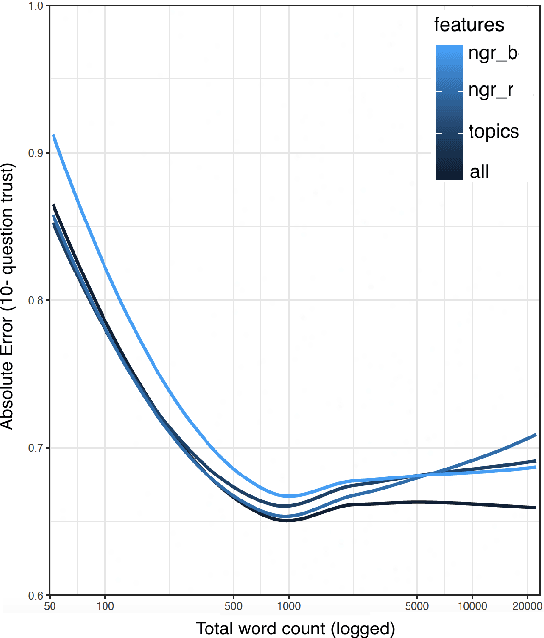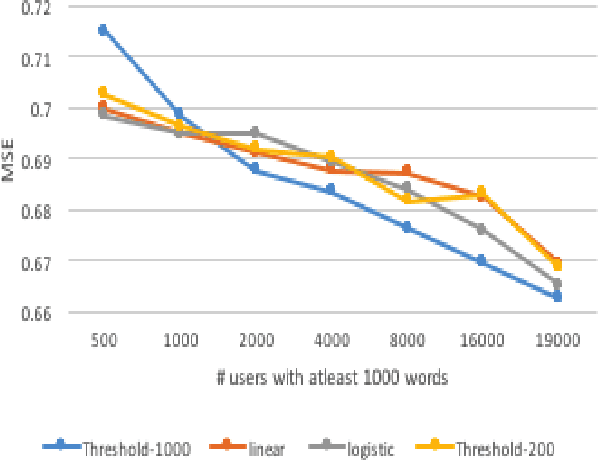Predicting Human Trustfulness from Facebook Language
Paper and Code
Aug 16, 2018



Trustfulness -- one's general tendency to have confidence in unknown people or situations -- predicts many important real-world outcomes such as mental health and likelihood to cooperate with others such as clinicians. While data-driven measures of interpersonal trust have previously been introduced, here, we develop the first language-based assessment of the personality trait of trustfulness by fitting one's language to an accepted questionnaire-based trust score. Further, using trustfulness as a type of case study, we explore the role of questionnaire size as well as word count in developing language-based predictive models of users' psychological traits. We find that leveraging a longer questionnaire can yield greater test set accuracy, while, for training, we find it beneficial to include users who took smaller questionnaires which offers more observations for training. Similarly, after noting a decrease in individual prediction error as word count increased, we found a word count-weighted training scheme was helpful when there were very few users in the first place.
 Add to Chrome
Add to Chrome Add to Firefox
Add to Firefox Add to Edge
Add to Edge